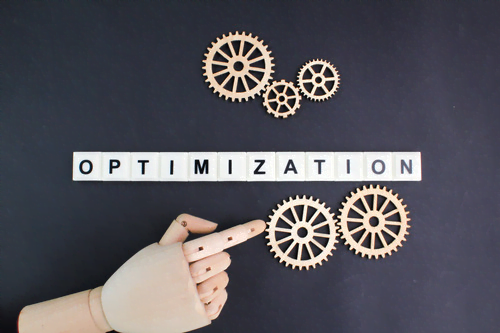
INTRODUCTION TO HIGH-PERFORMANCE CULTURE
What sets successful companies apart from those that struggle to foster employee creativity and commitment? Often, the secret to success can be discovered in the company’s culture, particularly in a well-oiled team atmosphere.
A “high-performance work team” is a group of individuals who cooperate well, come up with creative, high-quality solutions to issues, and have a shared vision for the future. Such a team has an extremely well culture.
Members of the group have a deep understanding of their responsibilities to one another and to the group as a whole, and as a result, they work together to achieve their goals and resolve conflicts quickly and effectively.

People are said to be working as a “team” when they do so in order to achieve a common goal rather than for individual gain. An organization’s culture is the foundation on which a company’s values and goals are established, and the key characteristics of a high-performance work culture are essential for any organization to achieve success.
High-performance teams are the cornerstone of any high-performance culture, and they are necessary to create an environment in which employees can thrive. A high-performing culture also requires strong company values and a commitment to performance excellence. Without these elements, it is impossible to achieve a high-performing culture that is essential for any organization to be successful.
When asked to define the term “team,” authors Jon R. Katzenbach and Douglas K. Smith of The Wisdom of Teams: Creating the High-Performance Organization present a clear and precise explanation. “A small group of people with complementary qualities who are committed to a common purpose, performance goals, and methodology for which they hold themselves mutually accountable” is how the definition of a team reads.

IMPORTANCE OF HIGH PERFORMING TEAM IN ANY ORGANIZATION
In order to compete successfully in the modern economic world, teams are essential. Executive teams are responsible for running businesses. New products and services are created by project teams. Diverse groups aid the growth of many different sectors, including the medical and service sectors (consulting, non-profits).
The marketing and sales division’s main objective is to fulfill customer requests for products and services. High-performance work teams are essential to the success of most firms because they enable better task organization and execution, which in turn produces superior results and competitive advantage.
A high-performance culture is essential for any business to succeed, and requires careful development of leadership skills, encouraging open communication, and fostering of a high-performance workplace. High-performing organizations are able to reach their business goals and ensure business success through the growth of their employees.

VALUES OF A HIGH-PERFORMANCE CULTURE
Leadership is key in developing a culture of high performance, as it provides direction and sets an example for employees. It is also important to provide employees with the resources they need to succeed and to ensure that all employees are working towards the same goals. By creating an environment of trust and collaboration, high-performing teams can be developed, leading to greater success for the organization.
High-performance teams, in contrast to other sorts of organizations, are not simply a collection of individuals who blindly accept commands but instead have their own identities and ambitions.
When everything at work functions efficiently, we say that productivity is high. The workforce is highly efficient and motivated. They feel supported by the company, are motivated to achieve, believe in its mission and have a reasonable opinion of upper management.

To function effectively, high-performing teams also need:
A deep sense of purpose and commitment to the team’s members and to the mission.
Relatively more ambitious performance goals than average teams.
The team members know their roles and have a firm grasp of their personal duties.
Having a wide range of expertise that helps the team as a whole.
Group members rely on and respect one another.
There’s a good reason why teamwork is so prevalent in today’s offices. Because of the different sets of knowledge, experiences, and views that may be brought to the table, high-performing teams have an advantage over individual efforts. High-performance work teams reliably implement strategy, complete objectives and need minimum managerial monitoring when given the authority and duty to carry out their functional activity and be held accountable for their performance. All of this leads only in one direction which indicates that Companies with high-performance cultures are great to work for.

CHARACTERISTICS OF HIGH-PERFORMANCE WORK TEAMS
It seems that there is agreement on the factors essential to effective collaboration, even though there is no agreed-upon technique for measuring group effectiveness and no two teams are alike.
Such teams have all the makings of a high-functioning organization: members who know what they’re working toward, who possess the necessary skills, who are incentivized to do their best work, who are leaders who can effectively manage conflicts and facilitate open lines of communication and who are trusted with authority and who set and enforce standards.

Team purpose, goals and roles
When members of a group work together toward common goals, they form a high-performing team. The level of commitment they show to their job and their co-workers are often used as an example of what it means to be an ideal employee.
The output of a team increases when each member understands their role and the team’s overall goals. All members of the team must be aware of and understand the significance of the team’s objectives.

Incentives, motivation and efficacy
Financial and non-financial compensation systems that recognize and encourage outstanding performance are helpful to teams in their pursuit of tactical success.
Extrinsic motivators, such as job satisfaction and hard tasks, are the most effective in the long run. Self-assured people are more likely to take risks in the name of team success.

Leadership
Strong team performance can stem from having strong leaders. One must be able to a) keep the purpose, goals, and approach meaningful and relevant; b) build commitment and confidence; c) ensure that team members constantly enhance their skills; d) manage relationships from the outside, with a focus on the removal of obstacles that might hinder group performance, in order to be an effective leader.
It’s often agreed that leaders who care about their teams’ success, their employees’ professional development, and the team’s interpersonal dynamics are the most effective and well-liked by their teams’ members.

Conflict and communication
One of the most important steps in creating a high-performing team is learning how to effectively manage disagreements. When there is a free flow of information inside a team, leaders are free to coach rather than command, and issues may be confronted without any fear of repercussions.
The success of any team relies on its members’ ability to stay inspired, engaged, and willing to work together, all of which may be achieved through open lines of communication.

Power and empowerment
Teams that are given more autonomy by their leaders tend to take greater ownership of their work, acquire new knowledge and become more invested in the outcome as a result.
Researchers have found that the “loose-tight” condition is best, as it allows humans to make meaningful decisions while still being subject to explicit decision-making limitations.

Norms and standards
Like rules, which regulate group behavior, norms can promote positive interactions within a team. Effective teams share information freely, resolve conflicts quickly, and evaluate their progress often.
The most productive groups discuss and agree upon a set of norms for how they will operate, including expectations for how each team member will behave and how the group as a whole will hold others accountable.

BENEFITS OF HIGH-PERFORMANCE CULTURES
A high-performance culture is one in which members of the team trust one another and the leadership, and in which members of the team work together to achieve common goals.
Some of them are:
They’re more profitable.
In low-performing organizations, employees’ unfinished tasks “float up” to higher-ups because they lack the competence, expertise, support, resources, and incentive to see them through.
However, this kind of loss is uncommon in high-performance cultures since its members are capable of shouldering their duties.
They encourage idea generation.
In a high-performing company, employees are enthused about their work and have a keen interest in the company’s success.
Employees are more willing to contribute to decision-making and provide constructive criticism when they are treated with the kind of respect and trust that characterizes high-performance cultures.

Organizational culture
To imbibe a high-performance culture into the company culture, it is important to have a high-performing team. This requires empowering employees, providing them with the resources they need to be productive, and encouraging a culture of continuous learning.
By creating an environment of support and growth, teams can reach their full potential and become high-performing.
They experience less employee turnover.
In a high-performance work environment, employees take pride in their work and are trusted to make decisions independently. However, a high-performance culture is neither combative nor pessimistic.
When compared to a toxic work environment, a high-performance culture is preferable because it places a premium on things like employee health and happiness, as well as trust, support, value alignment and professional development.
Encouragement and support in the workplace, availability of necessary resources and belief in the employee’s ability to do their duties well all contribute to a lower turnover rate. A high-performing, non-toxic culture increases employee engagement and retention.

CONCLUSION
Organizational and individual success are both enhanced by high-performance cultures. Creating an environment where employees feel valued, supported, and trusted increases their motivation and productivity.
Like any new or ongoing endeavor, establishing a high-performance culture may be difficult. However, if HR departments place a premium on free communication, shared values, performance management, and employee development, they may build an organizational culture and prepare teams for success.

Teamwork is crucial to success and survival in today’s competitive business world. On the other hand, building powerful teams is not a blind stab in the dark. The key to constructing high-performing teams is to first identify each member’s specific strengths, and then pair them with colleagues whose own expertise and character traits are a good fit.
The rewards much outweigh the effort involved in what initially appears to be an enormous project. We at Ruskin Felix Consulting provide efficient remedies to build high performing team culture which is optimal to be successful, please feel free to contact us on contact@ruskinfelix.com











